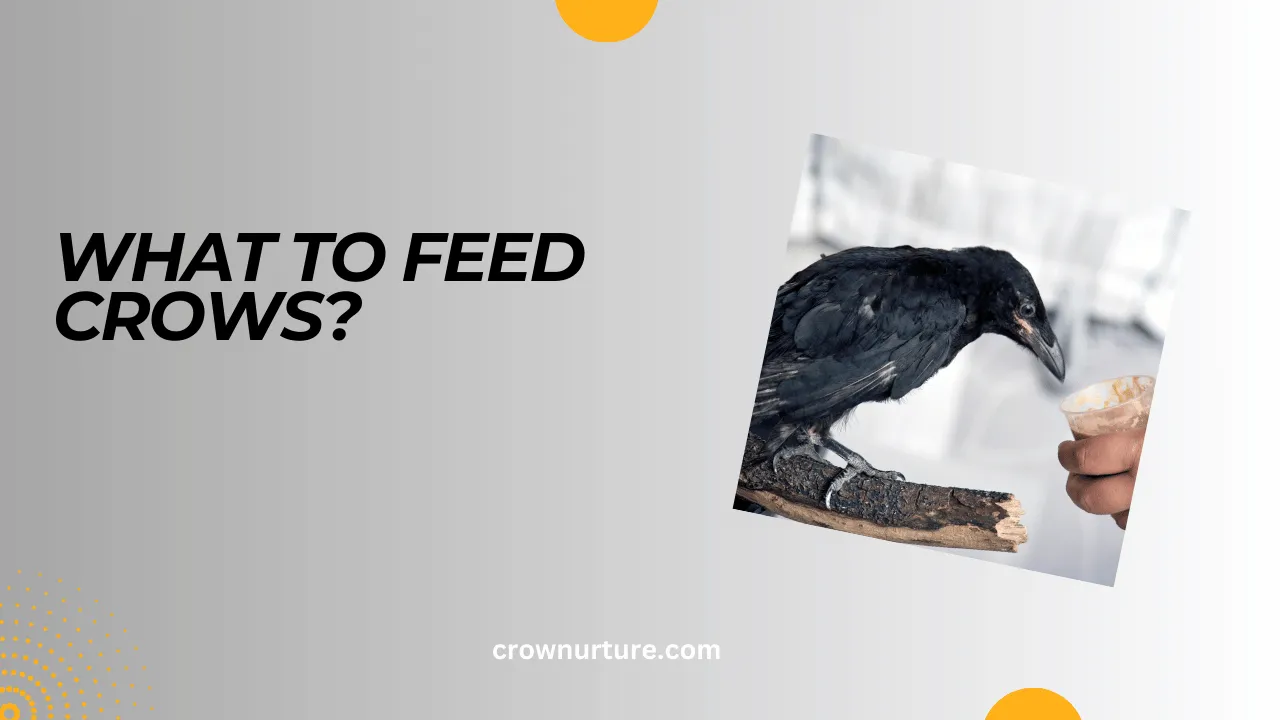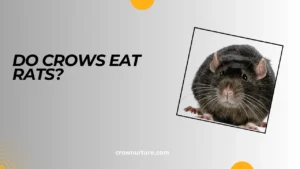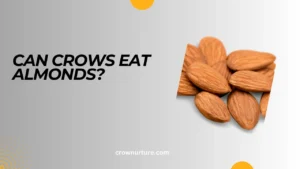Crows are among the most intelligent and resourceful birds you’ll encounter, often sparking a mix of curiosity and awe. While they are sometimes labeled as pests, crows play a vital role in maintaining ecological balance by controlling pests, dispersing seeds, and scavenging waste.
Feeding these clever creatures can help foster a closer connection with nature and even build a relationship of mutual trust. Understanding what to feed crows isn’t just about tossing scraps in the yard.
It involves recognizing their dietary needs, behaviors, and the ethical implications of feeding wildlife. Offering the right kinds of food can ensure their health while enriching your experience as an observer of their unique habits.
This guide dives deep into the dietary preferences of crows, including what foods to offer, what to avoid, and how to feed them responsibly.
Whether you’re an avid birdwatcher or just someone fascinated by these brilliant black birds, this article will help you create a crow-friendly environment in your backyard.
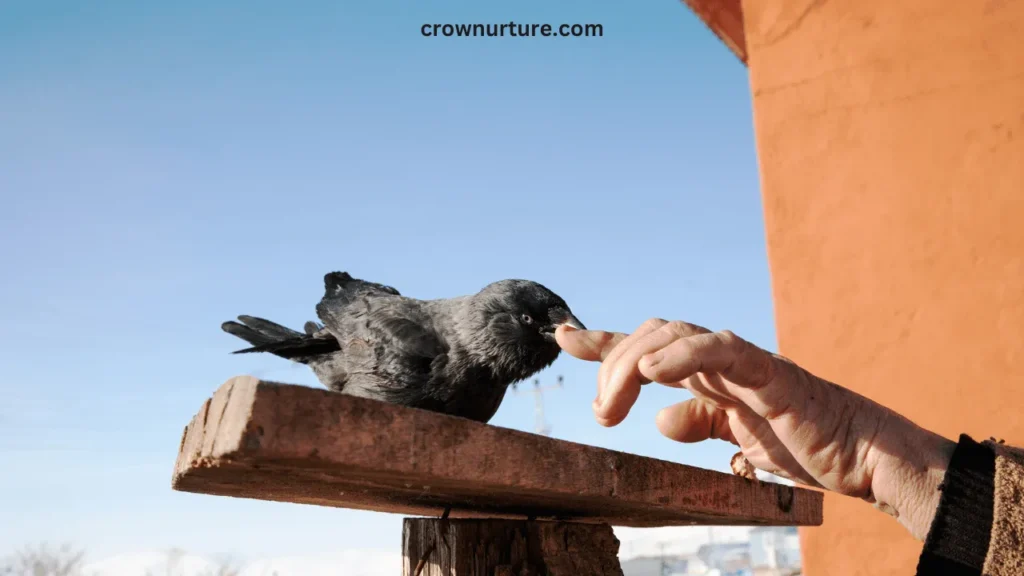
Contents
1. Understanding Crow Behavior
Crows are omnivores, meaning they eat both plants and animals. Their diet includes seeds, fruits, insects, small animals, and carrion, making them adaptable to various environments.
This flexibility allows them to thrive in both urban areas and the wild. Their diet also varies with the seasons. In spring and summer, crows consume more protein-rich foods like insects to support nesting and raising their young.
In fall and winter, they shift to consuming nuts, berries, and other plant-based food sources when insects are less available. Crows are incredibly intelligent and have been observed solving complex problems to access food.
They can remember food locations, recognize friendly humans, and even pass on learned behaviors to other crows. This intelligence makes feeding them a rewarding experience.
2. Suitable Food Sources
Providing a variety of safe, nutrient-rich foods can attract crows to your yard while ensuring they stay healthy.
- Commercial Birdseed:
- Sunflower Seeds: Black oil sunflower seeds are a favorite among crows due to their high-fat content.
- Suet: This high-energy food is especially beneficial during colder months. It provides the fats crows need to stay warm and active.
- Mixed Seed Blends: Blends that include cracked corn, millet, and peanuts cater to the broad tastes of crows.
- Natural Food Sources:
- Fruits: Crows enjoy a range of fruits, including berries, cherries, apples, and grapes. Planting fruit trees or leaving fruit scraps can attract them.
- Nuts: Unsalted peanuts, walnuts, and acorns are highly appealing. Offer them in their shells to encourage problem-solving behavior.
- Insects: Encourage a natural insect population by avoiding pesticides. Alternatively, you can provide mealworms, either fresh or dried.
- Water:
Providing fresh water is just as important as food.- Bird Baths: Place a large, sturdy bird bath in an open area for crows to drink and bathe.
- Cleanliness: Regularly clean the water source to prevent contamination or algae buildup.
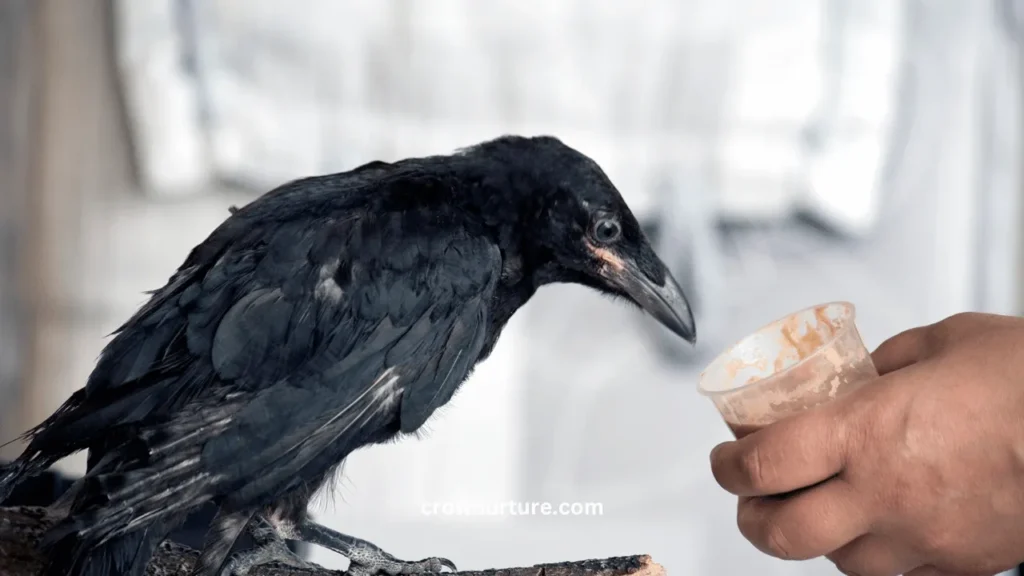
3. Avoiding Harmful Foods
Not all foods are safe for crows, and some can cause serious harm. Avoid offering these items:
- Moldy or Spoiled Food: Mold can produce toxins that are dangerous to crows and other wildlife. Always provide fresh food.
- Salty or Fatty Foods: Foods like chips, salted nuts, and fried snacks can lead to dehydration and health problems in birds.
- Chocolate: Chocolate contains theobromine, which is toxic to birds and other animals.
- Processed Foods: Bread, crackers, and other processed items offer little nutritional value and can lead to malnutrition.
Feeding crows responsibly means prioritizing their health and ensuring the food you offer is safe.
4. Ethical Considerations
When feeding wildlife, it’s essential to do so responsibly to avoid unintended consequences.
- Responsible Feeding: Avoid overfeeding, as this can lead to dependency. Feed small amounts at consistent times to mimic natural foraging.
- Attracting Unwanted Wildlife: Overfeeding or leaving food unattended can attract rodents or other scavengers. Monitor feeding areas regularly to avoid this.
- Impact on Local Ecosystems: Feeding crows excessively can disrupt local food chains, so balance is key. Ensure your actions don’t negatively impact other species in your area.
Always respect the natural behaviors of crows and avoid feeding practices that could harm their survival skills.
5. Creating a Crow-Friendly Environment
Feeding crows is more effective when paired with a welcoming environment.
- Perching Areas: Provide tall perches or maintain dead branches in your yard where crows can sit and survey the area.
- Nesting Sites: Plant trees or provide nesting boxes to encourage crows to stay long-term.
- Safe Feeding Zones: Choose open, accessible areas where crows feel safe from predators while eating.
Creating such an environment not only attracts crows but also supports their natural behaviors.
Conclusion
Crows are remarkable birds that deserve admiration and respect. By providing the right food, maintaining a clean water source, and creating a safe habitat, you can attract these intelligent creatures to your yard in a way that benefits both them and the environment.
Feeding crows responsibly goes beyond scattering scraps. It’s about understanding their dietary needs, respecting their natural behaviors, and balancing your impact on local ecosystems.
With thoughtful effort, you’ll not only enjoy their fascinating company but also contribute to their well-being in a meaningful way.
FAQs
1. Can I feed crows bread or crackers?
While crows may eat bread or crackers, these foods lack essential nutrients and can lead to malnutrition.
2. What is the best time of day to feed crows?
Early morning or late afternoon are the best times to feed crows, as they are most active during these periods.
3. What kind of fruits do crows like?
Crows enjoy fruits like apples, berries, grapes, and cherries. Fresh or slightly overripe fruits are ideal.
4. Are peanuts safe for crows?
Yes, unsalted peanuts are a great food source for crows. Offer them in their shells to encourage natural foraging behavior.
5. Can I provide cooked meat to crows?
Yes, small pieces of unseasoned cooked meat are safe and provide valuable protein. Avoid seasoned or fatty cuts.
6. How can I prevent crows from becoming a nuisance?
Limit feeding to small, consistent portions and keep feeding areas clean to prevent attracting other pests.

